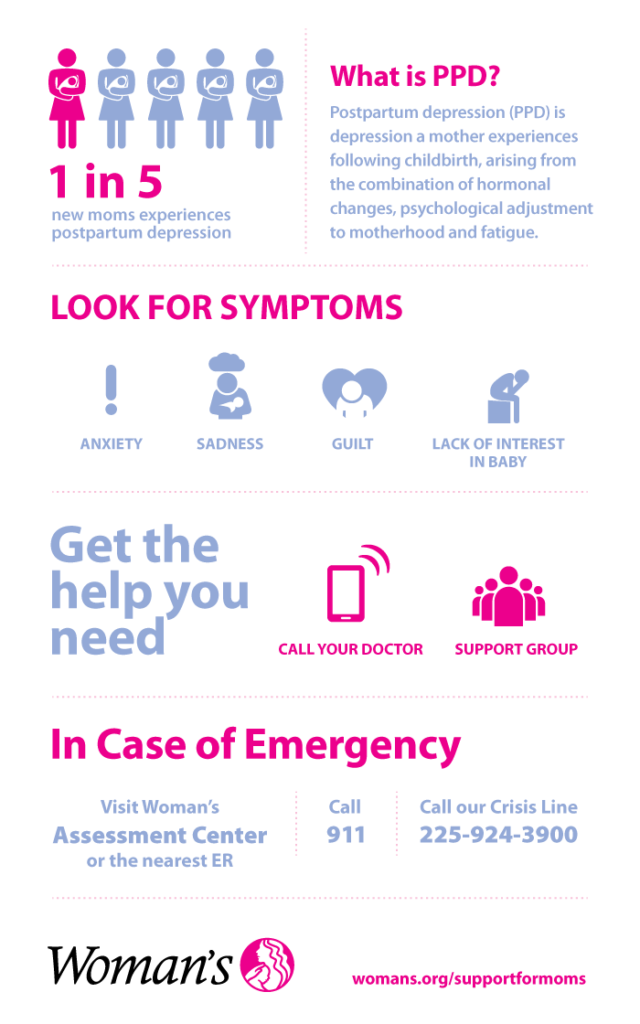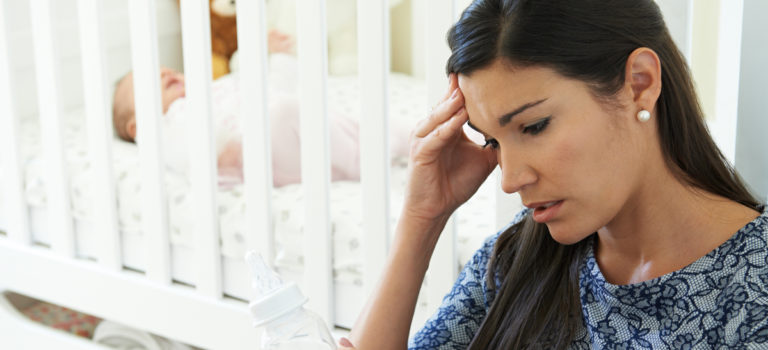One in five new mothers experiences postpartum depression, but unfortunately not all of these seek help or even know what type of support is available. During Maternal Mental Health Awareness Month in May, Woman’s Hospital is highlighting those resources available to new mothers who may need support coping with emotions following childbirth, including access to social workers trained in caring for postpartum patients.
While an estimated 50-80 percent of women can experience “baby blues,” that cause them to feel weepy, irritable or anxious, these symptoms will usually resolve themselves within two weeks and do not significantly impair normal functions. In cases where these symptoms continue and/or affect daily activities, a mother could potentially have postpartum depression.

Postpartum depression may start as early as the second or third day after delivery or take several weeks to a year to develop. Common symptoms include:
- Feeling sad, angry, irritable
- Lack of interest in the baby
- Crying often
- Feeling guilty, ashamed or hopeless
- Unable to sleep or sleeping too much
- Loss of appetite
- Anxiety, worry, stress
- Withdrawing from activities you normally enjoy
Women experiencing symptoms of postpartum depression are encouraged to speak with their doctor about treatment options which include medication and/or counseling. Connecting with other women who are in similar situations can also be healing. Woman’s Hospital sponsors the Mom2Mom Support Group, which offers education and support for women with symptoms of “baby blues,” depression and/or anxiety. It’s also a welcoming place to connect with moms who understand what you are going through and to learn new ways to balance motherhood in a safe, supportive environment.
According to Renee Bruno, MD, a psychiatrist for Woman’s Hospital who specializes in women’s mental health and reproductive psychiatry, it is also important to recognize the difference between postpartum depression and postpartum psychosis. “Postpartum psychosis happens much less often than postpartum depression, but it involves symptoms such as delusions or hallucinations that can endanger moms and their children,” she explained.
The onset of postpartum psychosis is often sudden and can cause paranoia, mood swings and confusion. Postpartum psychosis is an emergency that requires immediate assistance. If a mother needs emergency support, she can:
-
Call 911
-
Visit the Woman’s Hospital assessment center or nearest emergency room
-
Call the Crisis Line at 924-3900
For those with loved ones who are new mothers, simply letting them know you are available and asking how you can help them may have a significant impact on “baby blues” or postpartum depression they may be experiencing.
“One of the symptoms of postpartum depression that women talk to me quite often about is the guilt that they experience when they just need a break from the baby,” Dr. Bruno said. “Having a supportive family that encourages and empowers a woman to verbalize her thoughts, feelings and needs can help to establish a balance for new moms.
For more information on how Woman’s can help you or a loved one in need of postpartum support, visit womans.org/supportformoms.

